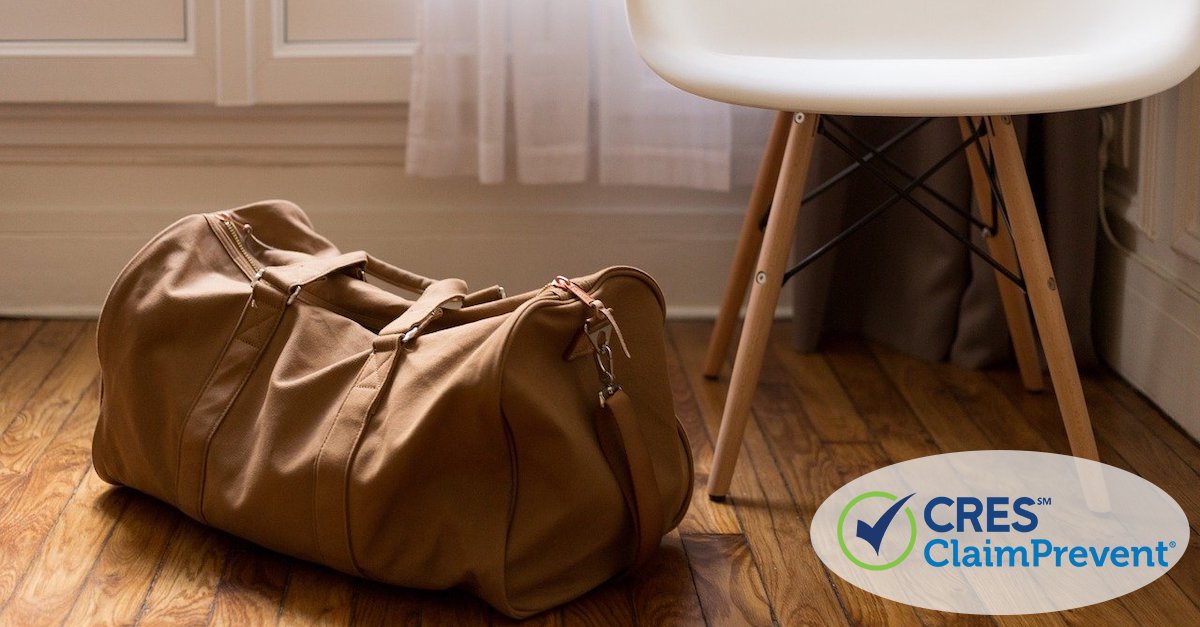The Centers for Disease Control and Prevention (CDC) recommends that Americans limit travel at this time, because it can increase the chance of spreading and getting COVID-19. CDC has stated that postponing travel and staying home is the best way to protect yourself and others from contracting the virus.
It comes as no surprise then, that out-of-state buyers may be reluctant to travel to inspect properties during this pandemic. This can pose particular issues for real estate agents if you have to manage the sales process remotely, with some buyers’ even purchasing sight unseen.
Here are some tips for real estate agents to help and support out-of-state buyers during the pandemic…
Be Prepared to Adapt Your Regular Processes
Government directives are changing at a rapid pace during this pandemic, and you must be prepared to adapt if and when things change. Open houses have already largely been replaced by virtual tours in these unprecedented times. Use virtual tours and/or FaceTime to do live walkthroughs to show buyers out-of-state properties. These are COVID-safe methods to show prospects homes matching their requirements, without having multiple people in and out of every property.
Have you already got processes in place to manage remote closings? If not, it’s time to start thinking about it, so you can adapt to what the market is currently demanding.
Including a contingency period in the contract is also a good strategy for out-of-state buyers, especially in a high-demand market. This will allow the buyer to inspect the home within a specific time frame after making an offer on the property. The buyer can then negotiate on repair costs or cancel the contract, if they decide not to proceed once they’ve inspected the property.
Consider the Risks Of Purchasing Sight Unseen
If the purchaser wants to buy a property sight unseen and doesn’t know the area well, be prepared that you may need to provide further information. This might include telling them about any nearby trains, potential traffic noise issues or other aspects of the property they should know about.
You must disclose anything that could materially affect the decision to purchase or the value of the home.
You can also refer them to other external sources, such as the Department of US Data and Statistics, local police for community safety and crime information, and local government offices for other information about the community.
See our post on Selling a Real Estate Property Sight Unseen to find out more about the risks of purchasing sight unseen.
When Dealing Remotely, Communication is Key
Walk the out-of-state buyers through the process and ensure they know exactly what is happening, when it’s happening, and why. Your initial phone consultation is crucial to gather essential information from the buyer:
- What sort of home are they looking for?
- Do they know the area?
- What are the non-negotiables?
- On what are they willing to compromise in a fast-moving market?
If the buyers have a trip to the area planned sometime soon, try to develop a short list of appropriate properties before they visit. The more groundwork that can be done before they visit, the better, as you’ll be able to use their time (and yours!) more efficiently.
Safety Issues When Interstate Buyers Come to Town
It’s important as a real estate professional during these ever-changing times to be aware of all COVID-19 directives from the government and any current restrictions on interstate travel. The CDC offers a convenient ‘Travel Planner’ on their website, where you can obtain some of this important travel restriction information. Just enter a city, zip code or address on the website to find out more.
Some states require a 14-day quarantine or self-isolation period upon arrival and/or a negative COVID-19 test. You will need to ensure that your out-of-state buyers have factored these restrictions into their travel before you take them around to visit properties. It’s important to keep you, your team and your other clients safe.
Other things you can do to ensure you limit exposure from out-of-state buyers:
- Ask COVID questions prior to inspections:
- a) Have you had a positive COVID-19 test?
- b) Do you have any symptoms?
- c) Have you been a close contact of someone with COVID-19?
- Promote good hand hygiene and encourage hand-washing and sanitizing before and after inspections
- Follow mask-wearing directives
- Skip the handshakes
- Practice social distancing and maintain a distance of 6 feet (approximately two arm lengths) between yourself and others
Protect Yourself Against the Risks
Having sufficient real estate E&O insurance coverage is essential for any real estate business as you face risks every day. Check up on your level of protection to make sure you’re covered if a claim is made against you.
- It’s the specific-to-real-estate individual coverage areas — like Open House & Showings coverage, Environmental/Pollution coverage, etc. — that are most important.
- Too many E&O policies are used across industries — and you may find their “bare bones” coverage won’t protect you and your business from specific real estate risks.
Contact the friendly CRES team at 800-880-2747 for a confidential discussion about your insurance needs today. CRES specializes in real estate Errors and Omissions insurance. And with CRES E&O + ClaimPrevent®, you will have access to a team of legal professionals 7 days a week to help you prevent lawsuits.
CRES is part of one of the largest insurance brokers in the world, so we have unparalleled access to more E&O options than just about anyone. Let us find you the best coverage for the best price.
